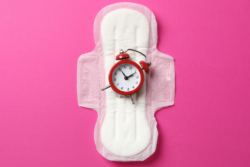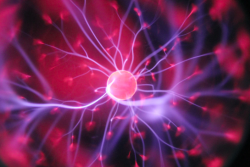Having a miscarriage can be devastating, especially if your journey to get to that point has been particularly long or difficult. It’s important to give yourself time to grieve, but also a chance for the body to heal before trying to conceive again. This means healing both physically and emotionally.
How Long to Wait After a Miscarriage Before Trying Again
Because of the drastic change in hormones, and changes within the uterus, it’s recommended to wait until you’ve had at least one “normal” menstrual period before trying to conceive again. That doesn’t mean that you have to start trying right after this first period. Take this time to gather your thoughts and feelings with your partner (or whoever is part of your reproductive support system) and decide when you’re ready to start trying again. In the case of multiple losses, it’s important to be assessed by your reproductive endocrinologist and medical team.
Each person may experience a miscarriage differently. Some are chemical pregnancies that come to a halt, others are losses after months of development; some may pass quickly, and others may be painfully drawn out. Because of these differences, the physical experience will also be different. What should you know about physical healing? In order to help avoid infection, it’s advised not to have intercourse after a miscarriage until bleeding has stopped, and if you’ve had a D&C (dilation and curettage) you may need to wait longer for the uterine lining to heal.
Getting Support After a Miscarriage
Now is the time to focus your energy on self-love, self-care, and healing. Although pregnancy loss isn’t something regularly talked about, many women have experienced one, or even multiples. If you feel alone or isolated, there are ways that you can tap into social support. Talk to family, friends, your partner, or whomever you can comfortably confide in. Or, reach out to someone who has been through a similar situation. Someone else who has experienced a loss knows the kind of supporting words that can make the greatest impact on your well-being and mental state.
If you don’t know anyone who has gone through a pregnancy loss, this is where using online resources can help. Find support groups either locally, or on social media where you can read others’ stories and supportive words, or you can participate and have a space to talk about your own experience, feelings and needs. Don’t ever be afraid to seek professional mental help if you feel you need it. Even just one session can help you process the situation.
Other Means of Processing After Miscarriage
Here are additional recommendations to help you process and heal after miscarriage:
- Take some time off. This could be a day or a week off of work. Or it could simply be an hour or two away from your responsibilities to take a nature walk or a bath or to just lay down and listen to a guided meditation.
- Grieve in your own way. Some find that journaling is a good way of processing thoughts and emotions. Others may just want to keep busy and continue their normal day-to-day.
- Consider processing your emotions through other outlets: art, drawing, painting, and through physical means (like running or hitting a punching bag, or power yoga).
- If you’re the type of person who finds release by crying, then do that. Have a good cry in a yoga class during savasana, during an acupuncture treatment, or in the shower where you can wash those tears away. Do what works for you.
Although these are suggestions, it is by no means an exhaustive list of how to cope. We all cope and process these situations differently. Where one person may need to cry, process, or experience their emotions, others may want to just move on, look forward, and keep going. But most importantly, if you think you are starting to suffer from depression, seek help immediately and be honest with your partner, support system, and healthcare team.
To learn more about how you can support your fertility, or to book a virtual appointment with a Conceive Health ND, contact us today.









